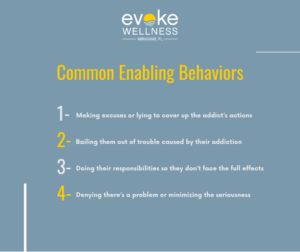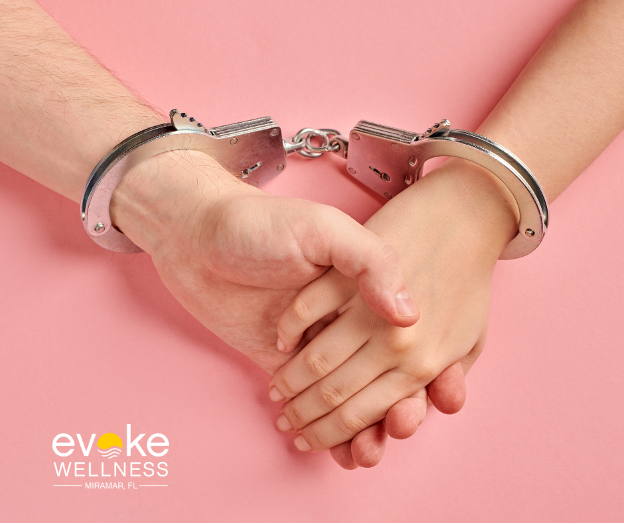You’ve heard the term “enabler” and may wonder exactly what it means. An enabler is someone who consciously or unconsciously helps a loved one continue self-destructive behaviors like substance abuse. As you read this article, you’ll gain insight into codependency and how to stop enabling addiction. We’ll explore the roles enablers play, effects on the family, and how to set healthy boundaries. You’ll also learn about treatment options like group therapy and alumni programs that can help both the addicted individual and enabler recover. Recognizing unhealthy patterns is the first step to positive change for all involved.
Together, let’s embrace the journey to recovery and the promise of a new beginning. Call us at (833) 819-6066 today or reach out online.
What Exactly Is an Enabler?
An enabler is someone who, through misguided attempts to help, inadvertently fuels an addict’s destructive behavior. While their intentions are good, enablers remove the natural consequences that could motivate the addict to seek help.

Recognizing Enabling
Enabling stems from a codependent relationship dynamic. The enabler, often a close family member, feels a strong urge to “rescue” the addict from their troubles. However, this only perpetuates the addiction cycle.
Enabling typically happens unintentionally. It’s important to recognize these patterns and instead practice “tough love” by allowing the addict to fully experience the ramifications of their choices. This may motivate them to finally seek professional addiction treatment.
Breaking the Cycle
Addiction impacts the whole family system. That’s why comprehensive treatment programs include family therapy to help loved ones understand codependency, set boundaries, and stop enabling behaviors. With education and support, families can start fostering an environment of accountability that promotes lasting recovery.
Enablers May Not Always Know They Are Enabling
Enablers often do not recognize their own enabling behaviors. They may believe they are simply being supportive or caring.
Lack of Awareness
Many enablers are in denial about the severity of their loved one’s addiction. They minimize problematic behaviors or make excuses. This lack of awareness prevents them from setting healthy boundaries.
Good Intentions
Well-meaning enablers think they are helping by rescuing the addict from consequences. However, this prevents addicts from experiencing the full impact of their choices – a key motivator for seeking recovery.
Codependency
Codependent relationships, common with addiction, foster enabling. Codependents derive self-worth from being needed by the addict. This dynamic perpetuates the addiction cycle.
Trauma Bonds
Trauma bonding occurs when intermittent reinforcement – like an addict’s periods of sobriety – creates a powerful emotional bond. This can blind enablers to the bigger dysfunctional patterns.
Professional treatment can help enablers recognize enabling behaviors and develop healthier coping strategies. Self-care, detachment with love, and participating in a support group are often recommended.
Signs of Enabling
Ignoring Psychological Changes
One telling sign of enabling is ignoring the psychological signs of addiction, like mood swings, irritability, impaired memory or depression when not using. Enabling behaviors make excuses for these psychological changes, allowing the addict’s substance abuse to continue unchecked.
Dismissing Behavioral Red Flags
Enablers may also dismiss concerning behavioral indicators like lying, loss of interest in activities, or continuing use despite negative consequences. Turning a blind eye to these red flags enables the addiction to progress.
Neglecting Physical Signs
Neglect of hygiene and responsibilities can signal an addict is being enabled. Enablers may fail to address increasing tolerance requiring higher dosages, withdrawal symptoms when attempting to quit, hostile behavior, excessive drowsiness, or slurred speech – all signs the addiction is being allowed to continue.
Getting Help for Yourself and Your Loved One
Comprehensive Treatment Options
Evoke Wellness offers a range of treatment programs tailored to support recovery. Their residential treatment program provides a structured environment to develop healthy coping skills. For those struggling with co-occurring disorders, dual diagnosis treatment addresses both substance abuse and mental health issues simultaneously.
Family Support and Aftercare
Recognizing the impact on loved ones, Evoke provides family therapy programs to help restore relationships and support systems. After completing primary treatment, clients can participate in aftercare program and alumni programs for continued recovery maintenance and relapse prevention strategies.
Personalized Therapies
A key component is the individual therapy program providing one-on-one counseling. Approaches like person-centered therapy and acceptance and commitment therapy address root causes. Group sessions and sober support groups foster peer support networks vital for lasting sobriety.
What Is an Enabler? Understanding Co-Dependencies in Addiction
Enabling Behaviors Fuel Addiction
An enabler is someone who unintentionally helps maintain an addicted person’s substance abuse. Enabling behaviors like denying there’s a problem, making excuses, or doing things the addict should do themselves allow the addiction to continue. The enabler’s actions remove the natural consequences the addict would face.
Codependency in Addiction
Codependency is the dysfunctional pattern that arises when trying to control the addict’s behavior through enabling. The enabler becomes consumed with the addict’s problems and neglects their own needs. This unhealthy dynamic perpetuates the addiction cycle for both people involved.
Breaking the Cycle
Evoke Wellness offers family therapy programs to address co-dependent behaviors. Clients and loved ones learn:
- How enabling prolongs addiction
- Setting healthy boundaries
- Detaching with love
- Self-care techniques
The goal is to stop rescuing the addict from consequences. This tough love approach motivates real change.
Veteran-Specific Support
Many veterans develop substance abuse after traumatic military experiences. Evoke’s veteran program provides specialized care like:
- PTSD and trauma therapy
- Medication management
- Coordination with VA services
Understanding the unique challenges veterans face allows for more effective treatment planning.
Conclusion
Understanding the roles that enablers play in addictions is a complex process. As you learn more about co-dependencies and how to set healthy boundaries, remember that recovery is a journey. Seek support through evidence-based programs that promote self-care, personal growth, and empowerment. With compassion for all, make use of available resources such as therapy, peer support groups, education, and aftercare to cultivate positive change. You have the inner wisdom and strength to create the life you envision, one day at a time.
Begin Your Journey with Evoke Wellness at Miramar
If you or a loved one is considering treatment, Evoke Wellness at Miramar invites you to contact us. Our compassionate team is ready to answer your questions, discuss your needs, and help you take the first steps toward recovery. In Miramar, you’ll find more than just a treatment program – you’ll discover a community dedicated to your wellness and success. Together, let’s embrace the journey to recovery and the promise of a new beginning. Call us at (833) 819-6066 today or reach out online.


